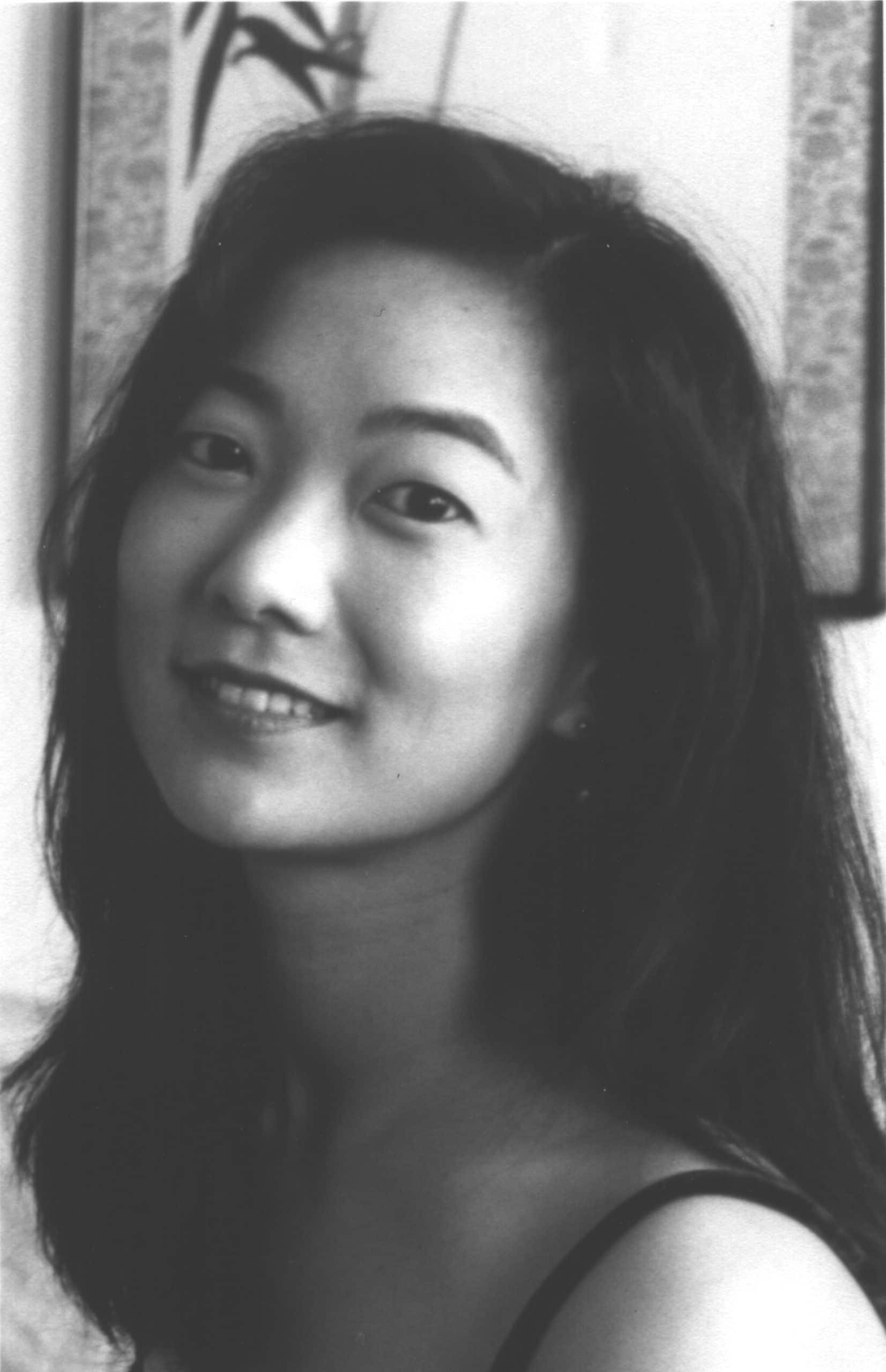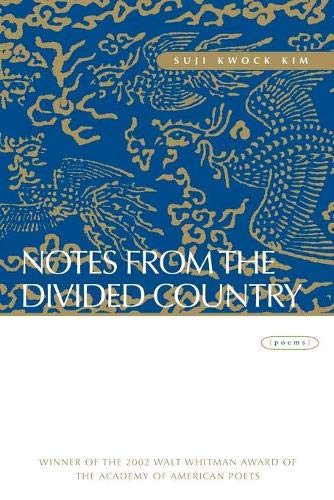
Suji Kwock Kim won the 2002 Walt Whitman Award from the Academy of American Poets for her first book of poetry, Notes from the Divided Country, selected by Yusef Komunyakaa. Her poems have appeared in The Nation, The New Republic, Poetry, Yale Review, Harvard Review, Threepenny Review, DoubleTake, Ploughshares, Asian-American Poetry: The Next Generation and other journals and anthologies. ‘Private Property,’ a multimedia play Kim co-wrote, was produced at the Edinburgh Festival Fringe and was featured on BBC-TV. She is the recipient of fellowships from the National Endowment for the Arts, and the Fine Arts Work Center in Provincetown: The Nation/ ‘Discovery’ Award, and grants from the New York Foundation for the Arts, California Arts Council, Washington State Artist Trust, Korea Foundation and Blakemore Foundation for Asian Studies. In 2006, she was the recipient of a Whiting Writer’s Award.
Kim earned her B.A. at Yale University; a Master of Fine Arts at the Iowa Writers’ Workshop; attended Seoul National University, where she was a Fulbright Scholar; and Stanford University, where she was a Stegner Fellow. She divides her time between San Francisco and New York. She currently teaches at both Drew University and Sarah Lawrence College. Her poems are being set to music by the Mayako Kubo and the Tokyo Philharmonic Chorus, with premieres in Berlin and Tokyo in 2007.

Judges’ Citation
Suji Kwock Kim’s title Notes from the Divided Country refers not only to the Koreas North and South and to all the Americas, but also to the countries of the mind.
Suji Kwock Kim’s title Notes from the Divided Country refers not only to the Koreas North and South and to all the Americas, but also to the countries of the mind. Travelling between past and present, Kim’s powerful fictive imagination creates almost unbearably realistic enactments of war-zones once inhabited by her parents, grandparents, and even her great-grandparents. If ‘death is no remedy for having been born’, as she says in ‘The Tree of Knowledge’, then perhaps poetry is: poetry as expiation, history, memory treasure trove. In highly sophisticated verse, with lines long and lean or short and subtle, an exorcism seems to take place through the precision and music of her language. In poems about the couple next door in San Francisco, or the poet on the road to Skye in Scotland, or in the streets of Seoul on the Buddha’s birthday, Suji Kwock Kim celebrates being alive and well in the complexities of the present moment.
Selected poems
by Suji Kwock Kim
tend their yard every weekend,
when they paint or straighten
the purple fencepickets canting
each other at the edge of their lot,
hammering them down into soil
to stand. How long will they stay
put? My neighbors mend their gate,
hinges rusted to blood-colored dust,
then weave gold party-lights with
orange lobster-nets & blue buoys
along the planks. So much to see
& not see again, each chore undone
before they know it. I love how
faithfully they work their garden
all year, scumbling dried eelgrass
in fall, raking away mulch in spring.
Today the older one, Pat, plants
weeds ripped from a cranberry bog.
Sassafras & pickerel, black locust
& meadowsweet, wild sarsaparilla,
checkerberry, starflower. Will they
take root here? Meanwhile Chris waters
seeds sown months ago. Furrows
of kale, snapbean, scallion break
the surface, greedy for life. Muskrose
& lilac cast their last shadows. Is it
seeing or sun that makes them flicker,
as if they’ve vanished? They shake
like a letter in someone’s hand.
Here come the guys from Whorfs
(“Whores”) Court, walking their dog
– also in drag – to the dunes.
I miss seeing Disorient Express
(a.k.a. Cheng, out of drag) walk by,
in tulle & sequins the exact shade
of bok choi. He must have survived
things no one can name, to name only
KS, pneumocystis, aplastic anemia.
I remember he walked off his gurney
when the ambulance came, then broke
his nurse’s fingers in the hospital
when he tried to change his IV line,
wanting to live without meds. Zovirax,
Ativan, leucovorin? I don’t know.
My neighbors pack down the loose dirt.
I’ll never know what threads hold
our lives together. They kiss, then fall
on the grass. I should look away but don’t.
Copyright © 2003 Suji Kwock Kim